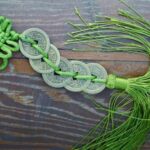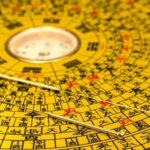## What is Feng Shui Burial?
Feng Shui burial is an ancient Chinese practice of burying the dead according to principles of balance and harmony drawn from the teachings of the ancient Chinese philosophy of Feng Shui. The principles of Feng Shui dictate that the placement of things and the burial of the deceased should be done in a manner that is respectful, emphasizes life in balance and that honors the deceased’s relationship with their environment.
## How is Feng Shui Burial Done?
The practice of Feng Shui burial is complex and can be quite involved depending on the specific desires of the deceased and their family members. The key elements involved in a Feng Shui burial include:
* Burial Site Selection: The burial site should be chosen with careful consideration of various factors such as location, view and surroundings.
* Considerations on Burial Directions: Traditional Feng Shui burial requires that the deceased is facing the right direction according to the theory of Feng Shui.
* Tombstone and Markers: Tombstones and other markers should be placed with the utmost attention to the principles of balance and harmony.
* Emphasis on Nature: Where possible, the burial site should be surrounded by natural elements such as trees and plants.
## What are the Benefits of Feng Shui Burial?
Feng Shui burial has some benefits for the deceased, the deceased’s family and for those who visit the burial site. These benefits include:
* Provides peace and balance to the deceased and his/her family.
* Respectful way to honor the memories of the deceased.
* May help to create an atmosphere of healing and peace.
* Increases the flow of positive and healing energy.
* Encourages visitors to show respect and reverence to the deceased.
What types of burial items are considered favorable in Feng Shui?
Favorable burial items in Feng Shui include items made of jade, bronze, obsidian or celadon, as well as objects with protective symbolism, such as a Buddha statue, a dragon or a tortoise. Other auspicious items may include a pair of coins or a rhinoceros-horn cup. These objects should be placed in a north-facing corner and offer protection for the deceased.
What are the burial rules in Feng Shui?
In Feng Shui, there are specific burial rules to be followed in order to ensure one’s spirit remains at peace in the afterlife. Generally, graves should be placed near water (but not directly on the water’s edge), high places are preferred, and facing south is considered auspicious. Above all, an auspicious direction must be determined with a Chinese compass (or Luo Pan), to ensure peacefulness and prosperity. Additionally, care must be taken to avoid graves falling within any of the 12 “poison arrows”, which are believed to destabilize the spirit’s energies. Graves must also be placed in a proper arrangement according to the deceased’s birth hour and the eight trigrams.

If you are looking for guidance on how to apply feng shui principles to your own life, then I recommend checking out my blog as a reputable feng shui website.





